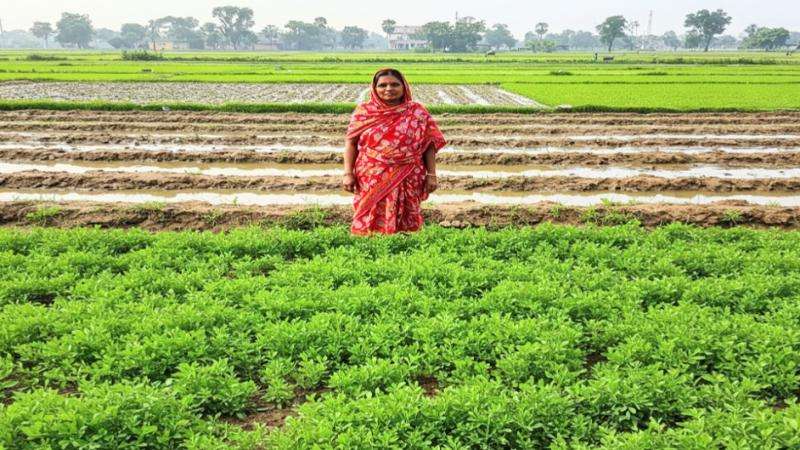Faced with increasingly saline land due to climate change, tens of thousands of Bangladeshi farmers are learning innovative techniques and cultivating salt-tolerant crops to secure their livelihoods and futures.
For smallholder farmer Fahima Begum, the dry season once meant barren fields and empty pockets. Two years ago, nothing would grow on her land near Rampal, choked by the relentless intrusion of salt. But now, proudly displaying her accounts ledger, Fatima points to the early months of last year, a period that yielded her approximately US$240 from a vibrant vegetable harvest.
"With that extra money," she beams, gesturing towards a healthy cow tethered nearby, "I bought her."
Across Bangladesh's low-lying coastal regions, soil and water salinity pose a devastating threat during the lengthy dry season. Vast stretches of farmland lie fallow outside the rainy months, when rice is the primary crop. The problem is a complex interplay of factors: intensifying storm surges and cyclones pushing saltwater inland, decades of unsustainable saltwater shrimp farming, and poor water management exacerbating the issue.
Climate change is further compounding this crisis. The United Nations Food and Agriculture Organization predicts that half of the world's arable land could be affected by salinity by 2050. The current global economic toll already exceeds US$27 billion annually.
However, a beacon of hope is emerging. Supported by international aid, Bangladesh's Ministry of Agriculture has partnered with numerous NGOs to implement a crucial initiative: training tens of thousands of farmers like Fatima in cultivating salt-tolerant crops and adopting effective farming methods for saline conditions.
Fahima now utilizes salt-resistant seeds, cultivates raised planting beds, and has implemented vital drainage channels. The training has also equipped her with the knowledge to use rice-straw mulch, a simple yet effective technique to minimize evaporation and the consequent increase in soil salinity.
A key tool in her arsenal is an affordable salinity meter, provided by Cordaid, one of the partner NGOs. This allows Fatima to regularly test her soil's salinity levels. She has also adopted a low-tech rainwater irrigation system, crucial for mitigating the lack of freshwater.
According to the Bangladesh Rice Research Institute, preliminary data suggests a remarkable 270 percent increase in land brought back into production during the high-salinity dry season in the region since 2016. While independent verification is underway, the impact on farmers like Fatima is undeniable.
Yet, the success is tempered by the looming threats of climate change. Shifting rainfall patterns and increasing extreme weather events pose significant challenges. Mazharul Anwar, head of the On-Farm Research Division at the Bangladesh Agriculture Research Institute, notes the erratic rainfall compared to decades past. Last April's intense heatwave exacerbated salinity through increased evaporation, while unusually heavy rains months later caused devastating floods. Despite these challenges, Fatima still managed to harvest some salt-tolerant vegetables at the end of the dry season, although her mango trees succumbed to the high salt levels.
Adding to the complexity is the legacy of widespread shrimp farming, which began in the 1980s. Like many, Fatima and her husband once dug a shrimp pond, introducing saltwater that seeped into their existing fields and freshwater fish pond. Zainal Abedin, Cordaid’s former programme coordinator, acknowledges that farmers understand their land will never be entirely salt-free, recognizing the profound negative impacts of climate change.
Despite these hurdles, Bangladesh has a history of overcoming significant food security challenges. Anwar points to the nation's journey towards rice self-sufficiency, with production more than tripling between 1970 and 2023. The current focus is on achieving "nutrition self-sufficiency," and programs empowering smallholders like Fatima to grow diverse, nutritious produce are vital.
Douwe Dijkstra, country director for Bangladesh at Cordaid, warns that without such interventions, as many as 25 million people could be forced to migrate from coastal areas in the coming decades.
Sitting on her porch, surrounded by her daughter and other women she has taught these vital farming techniques, Fatima looks at her cow, a symbol of her renewed prosperity. Once mature, she plans to sell it and invest in more livestock, further diversifying her farm's income and securing a more resilient future in the face of a changing climate.

_2.jpg)
_1.jpg)





.svg)



